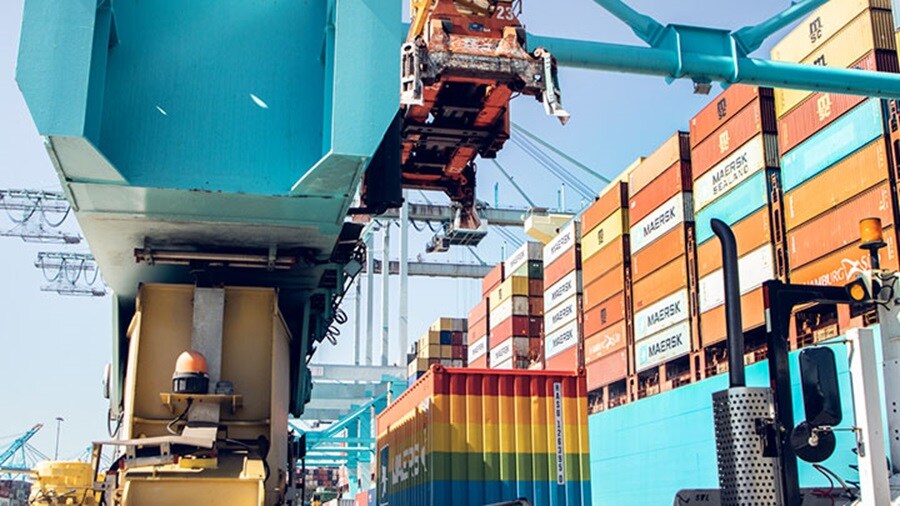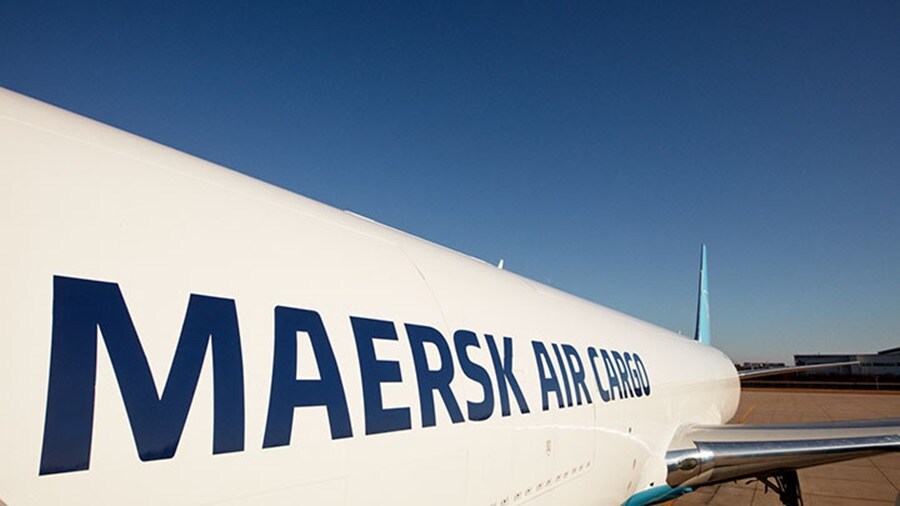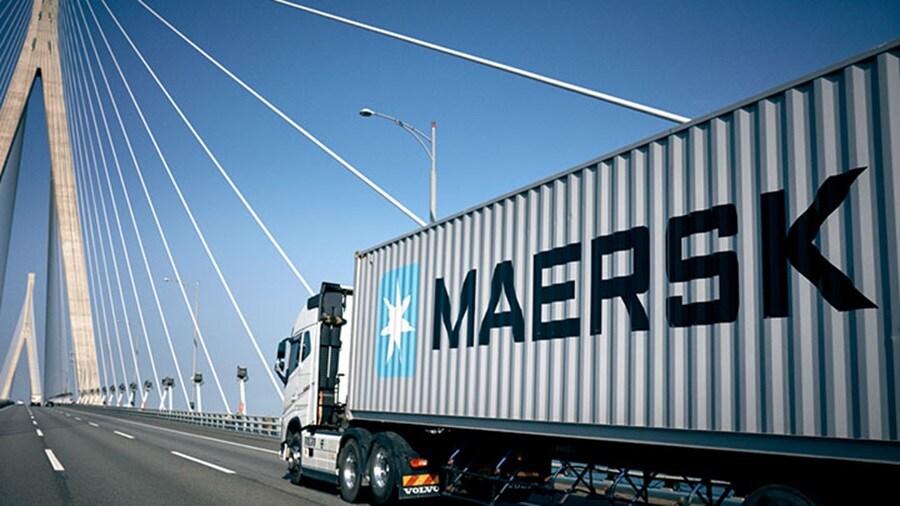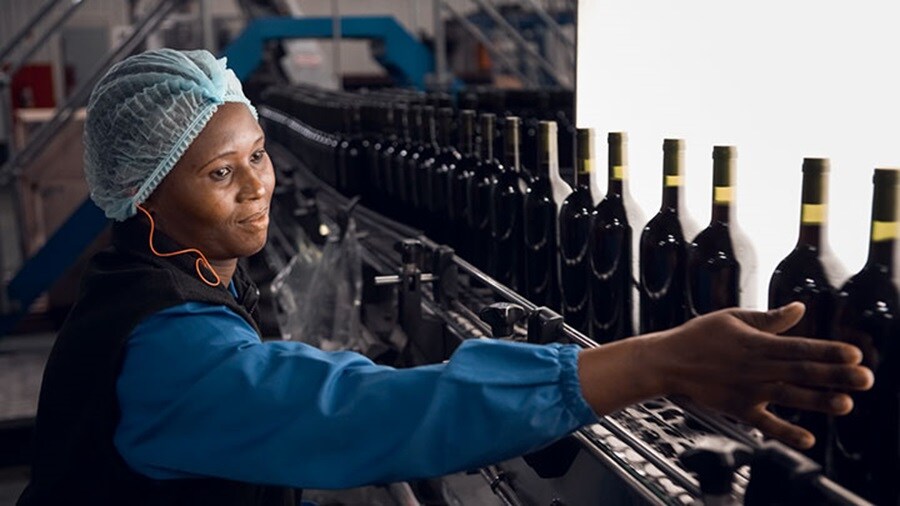Key Ports Update
Mediterranean and North European hubs are operating steadily, with minimal impact from the poor weather situation and seasonal high volumes. The reduced labour levels traditionally experienced during the summer period have been well coordinated between terminals and teams, and we expect to maintain the performance across European hubs in the coming month.

In Poland, Port of Gdansk has been operating with high yard density, which was worsened with a crane breakdown last month, prolonging waiting times to up to six days in July. To help alleviate the pressure on the terminal and keep our customers’ supply chains running, Maersk operations team has worked hard together with the terminal and managed to lower delays to 36 hours in August. Our teams continue working with the terminal and expect to reduce delays further into September as holiday season ends.
In the Adriatic, two separate vessel incidents in port of Rijeka, Croatia, and Port of Koper, Slovenia, caused a domino effect on the AE12 network and resulted in vessel delays at both ports.
After fine-tuning the network, our teams managed to minimise delays for the incoming vessels and continue to work on mitigating further delays for our customers.
Due to high volume of both import and export cargo, Port of Ambarli, Turkey, is facing very high yard density which is slowing down productivity. Consequently, feeder vessels are facing waiting times between three and four days (which resulted in misconnections of transhipment cargo), but at the moment operational constraints are having no further impact on AE15 network schedules. The situation is expected to remain a challenge for the upcoming weeks and to mitigate delays for our customers, our teams are reviewing alternative options for cargo and will communicate any solutions on an individual basis.
In recent weeks, our teams received an increased number of requests for adding inland shipping to ocean bookings. To find out more about the best options for your needs, please get in touch with your usual Maersk representative or see more information on our inland services page.
Ocean Update
Peak shipping season for cargo travelling from China to Europe is officially in full swing, and in line with previous years the network is expected to be very busy until October as retailers stock their shelves ahead of the holiday season.

During this period, China will enter Golden Week – a week-long national holiday in the first week of October during which factories face a reduced capacity or stop their operations altogether. To get cargo out of China before the holiday starts, many businesses will speed up their production and transport, which will create a high demand for cargo space and put additional pressure on transportation. With proper planning going into the pre-Golden Week rush, businesses can ensure their cargo moves with predictability and agility, so that it will reach the desired market in time, or alternative market if the demand shifts at short notice. Find out more about how to prepare your supply chain for Golden Week.
A similar situation awaits exporters of raw material, mainly waste paper, to India ahead of the Diwali festival. In response to the increase in demand during Diwali, packaging manufacturers and suppliers frequently increase their production efforts, meaning stocks of raw material from Europe shrink and will need to be replenished. As a result, businesses may encounter limited space and equipment availability near consumption centres ahead of November and the Diwali holiday. Just as in Golden Week, planning ahead and organising shipments in advance can help businesses procure ocean space and equipment on time, securing the availability of raw materials when needed.
Air Freight Update
Within air freight, the capacity for international belly freight (cargo transported via passenger aircraft) has progressively grown and is now just 15% below the 2019 benchmark. Notably, the belly capacity for transatlantic routes and travel between Europe and the Middle East has nearly fully rebounded.

Recent analysis is cause for optimism and a more pronounced peak season in Europe, particularly following a partial recovery observed in July. Market insiders express further confidence in an impending upswing, attributing it in part to significant product launches that are anticipated to stimulate demand until September. Maersk’s network of own controlled aircraft and global expertise means we are able to cater to increased demand and encourage customers to reach out for a tailored air freight solution.
After several months of divergence, the alignment between oil and aviation fuel prices has been re-established. In general, jet fuel prices are exhibiting signs of steadiness, with the current average price standing at 2.4 USD per gallon, according to IATA.
Please click here to learn more about our Air Cargo network and our own-controlled flights from and to Europe.
Inland Update
In an effort to increase electrified modes of freight transport, the German government has announced a new lorry toll component that will be linked to the amount of CO2 emitted by the trucks on German roads. The new toll will be introduced as of 1st December 2023, and Maersk teams will share more information on their introduction for customers as the calculations are being worked out. The move of the German government puts a greater emphasis on the need for alternative drive systems in the freight industry. Maersk has recently purchased 25 EV trucks for operational use in Germany – find out more on how this purchase is accelerating EV truck industry growth.

As trucks carry 77% of all freight transported over land in Europe, countries and businesses alike are looking to shift to rail freight transport to meet their emissions targets. In order for rail to be a reliable and efficient mode of transport, existing infrastructure needs to be reinforced and new rail lines added. In Germany, the Federal Ministry for Digital Affairs and Transport has allocated budget from the Climate and Transformation Fund to tackle an ”investment backlog” and make the country’s rail network more efficient, reliable, and modern. Likewise, in Italy, the Italian Ministry of Economics and Finance approved the final draft of the so-called FerroBonus initiative, an incentive to boost the modal shift to rail in the country. More information and next steps of the incentive will become clearer after Italy’s Deputy Minister of Transport meets key industry players in September.
E-Commerce Update
The European Commission launched a co-creation process for a more resilient, digital and green retail ecosystem to help drive Europe's competitiveness and strategic autonomy. The process aims to help further accelerate green and digital transitions in line with initiatives such as the EU Green Deal and Digital Decade. Over the past few years, digitisation has been driving the change in the relationships of consumers and businesses, with more and more businesses aiming to provide an omnichannel experience to their customers.

With this shift in mind, many online retailers saw growth opportunity in cross-border commerce, which was greeted with enthusiasm from the side of the consumers, with 54% of EU consumers shopping cross-border in 2022. In the UK, for example, online spending grew 1.6% in June – the first growth observed in 17 months. The opportunity itself, however, seems to work in favour of the big online retailers and marketplaces. Before the pandemic, 15% of retail SMEs declared having difficulties to digitalise and 32% lacked financial resources to introduce any kind of innovation.
While the share of SMEs with online selling points did increase from 2019 to 2022, it is still significantly lower than that of large enterprises. Three main factors are deterring SMEs from ecommerce participation: customs, compliance and cost. Find out what your ecommerce supply chain needs to overcome cross-border selling challenges.
Customs Update
In European customs, Maersk Customs Services is encouraging customers to prepare for upcoming labelling changes for goods moving from Great Britain to Northern Ireland – the first stage of which starts in October. As a customer or retail store, you must take the proper steps for labelling and marking your goods for transit. You also need to be sure how your goods are sold in Northern Ireland retailers, including posters and potential separate barcodes. More information can be found here, plus Maersk experts are on hand to support with any queries you may have.

Also in the UK, new rules on alcohol duty have been in place since the start of the month, so if you're importing, you should be ready for new rates and tax lines when declaring to UK authorities. Understanding the changes that impact your business financially on the bottom line is essential. At Maersk, we can quickly identify and guide you through these changes to ensure a smooth customs flow with no delays at the border and review the per litre of alcohol rate assigned to goods.
Meanwhile, the roll-out of the Single Trade Window (STW) programme - a single digital gateway at the UK border for traders to complete their import, export and transit obligations – kicked off in October 2022 and will continue until November 2023. Maersk has deep insights into all five of the roll-out phases and wants to make sure your voice is heard during co-design and addressing any pain points with HMRC. Please reach out to your local representative to discuss any pain points you envisage.
Useful Links
To sign up for the Maersk Europe customer newsletter, click here and update your preferences when prompted via email.
Click here for the latest Maersk North America market update.
Click here for the latest Maersk Latin America market update.
无论您需要什么,我们都可以随时为您提供帮助
I agree to receive logistics related news and marketing updates by email, phone, messaging services (e.g. WhatsApp) and other digital platforms, including but not limited to social media (e.g., LinkedIn) from A. P. Moller-Maersk and its affiliated companies (see latest company overview). I understand that I can opt out of such Maersk communications at any time by clicking the unsubscribe link. To see how we use your personal data, please read our Privacy Notification.
By completing this form, you confirm that you agree to the use of your personal data by Maersk as described in our Privacy Notification.
